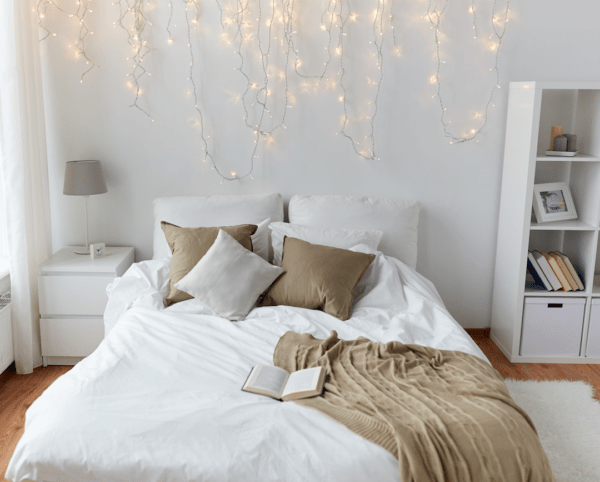
Taking Care of Yourself in 2020: How to Look After Your Mental Health

The beginning of a new year is the ideal opportunity to take time out for yourself and consider what goals you would like to achieve in the year ahead. The usual suspects are getting into shape, quitting smoking for good or saving money; but these goals tend to have more of a physical focus. It can be easy to neglect one of the more important aspects of overall happiness: our mental health. Your mood affects everything in your life ― your relationships, your work, your self-care ― so improving it should be at the top of your goal list. Here are some tips for making mental health a priority in 2020.
Eat better

The saying, “you are what you eat” is a cliché for a reason. What you put into your body fuels you for the day, so a full and well-balanced diet can have a powerful impact on your physical and mental wellbeing. Now, this doesn’t mean you have to count every single calorie you eat, unless you want to, but just taking steps to eat the right balance of healthy fats, vitamins and minerals can help your mind and body run more efficiently.
If you deprive your body of all the nutrients your brain needs, it can make you more susceptible to mood swings, anxiety or even depression. Small, actionable habits will help you get to where you want to be, and so try to make a conscious effort daily to ensure your plate is filled with colour, protein, healthy fats and carbohydrates for the perfect well-rounded meal.

Exercise more
No matter how busy your day is, one of the best things you can do for yourself and your mental health is to carve out a slice of time to exercise. Its effects are more than just physical. It provides the perfect opportunity for you to take a break away from other pressures in life, clear your mind and to focus completely on yourself.

This combined with a boost of endorphins – the feel-good chemical which is released when you exercise – can help improve your overall mood.
In fact, regular exercise helps you release stress, boost your self-esteem, concentrate and even sleep better. Plus, this doesn’t have to come from hours spent at the gym or crazy exercise classes, it can come from a long walk, a swim, gardening or even housework.
Tidying up your space

It has been argued that a tidy house is a tidy mind. When everything is in its place and you don’t have to scrabble around for items in your house, it can reduce stress. In fact, a new study found that a regular de-clutter of your house, desk or personal space has positive effects on mental health. In fact, 35% of people said it was therapeutic, 27% said it was rewarding and 16% said it was mentally satisfying. So, invest time in cleaning and removing unwanted junk from your home for ease of mind.
Go to bed earlier
You may think you’re doing OK on sleep, but take a closer look at your schedule. Are you really getting optimal hours? Are you maintaining relatively the same bed time every night?

When you’re tired and running on a few hours’ sleep, the simplest of things can seem like a mammoth task. In fact, lack of sleep can increase levels of anxiety and irritability, so getting an extra hour to two of sleep a night can have a big impact on your mental health. Implementing a regimented night-time routine, such as having a shower, not drinking caffeinated teas or coffees and avoiding bright lights on screens can help you fall asleep faster.
Setting a cut off time that you absolutely must be in bed and with phones off – to limit distractions can help. Find a way to relax and unwind in a way that suits you for a better night’s sleep and a less stressful tomorrow.
Cut down on alcohol

Sometimes there is nothing better than a glass of wine with dinner, but it can be easy for that one glass to turn into a bottle – especially after a long or stressful day. However, overconsumption of alcohol can have a negative impact on both your physical and mental health. Alcohol is a depressant that you feel when the drink wears off; leaving you with withdrawal symptoms that you feel mentally and physically.
The NHS recommends that both men and women should not consume more than 14 units a week – which works out to 7 glasses of wine or 6 pints of beer.
Cutting down alcoholic beverages can help reduce your dependency on it, the negative health impact on your body and mind, and the money you spend on it. That’s a win-win.
Say no more often

Trying to balance work, family and social obligations can be difficult and unfortunately, it can mean that self-care can often be put last. It’s important for your mental health and wellbeing to put yourself first more often and start saying no to the things you don’t want to do. If you would rather stay at home and read a book or go to the gym instead of going clubbing with your friends, say so and don’t feel guilty about not spreading yourself too thin.
Seek professional help
If things seem to be too much and you feel like you can’t cope, reach out and ask for help. Suffering from a mental illness can be overwhelming and exhausting but you don’t have to suffer alone. If it isn’t something your family and friends can help with, seek help from your local GP. They may be able to refer you to a mental health professional or a counsellor.
Asking for help is nothing to be ashamed about and is the first and most important step in getting better. It’s not something you have to suffer through alone. On weekends or out of GP hours you can also contact 111 or several mental health organisations that you can talk to at any time of the day.













































